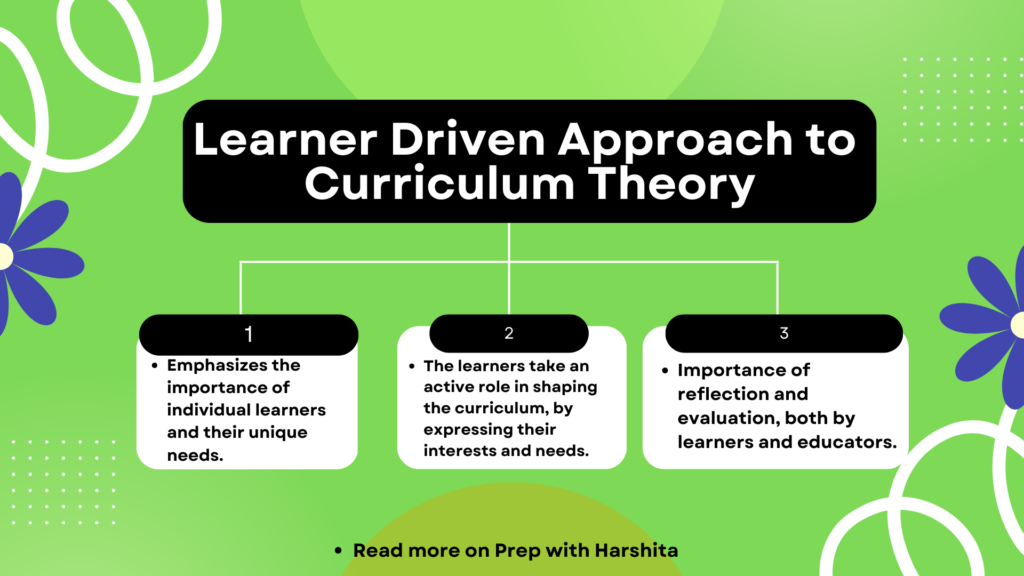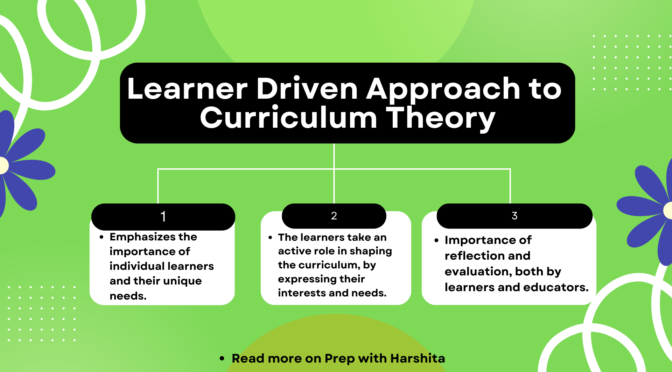A learner-driven approach to curriculum theory emphasizes the importance of individual learners and their unique needs and interests in the curriculum development process.
This approach emphasizes the importance of designing a curriculum that is flexible and adaptable so that it can meet the needs of individual learners.
In this approach, the curriculum is not a fixed set of content that is delivered to learners. The learners take an active role in shaping the curriculum, by expressing their interests and needs. They also work collaboratively with educators to design learning experiences that are relevant, engaging, and meaningful to them.
This approach also recognizes that learners come to the educational experience with different prior knowledge, skills, and experiences and that these differences must be taken into account when designing the curriculum. This requires educators to be sensitive to the diverse backgrounds and experiences of their learners and to design a curriculum that is inclusive and accessible to all.
A learner-driven approach to curriculum theory also emphasizes the importance of reflection and evaluation, both by learners and educators. This allows learners to reflect on their learning experiences. It also provides feedback on what is working well and what needs to be improved. Educators can use this feedback to adjust and modify the curriculum to better meet the needs of the learners.
Here are some of the key features of a learner-driven approach to curriculum theory:
- Flexibility and adaptability: A learner-driven approach recognizes that learners have diverse needs, interests, and abilities. Therefore, the curriculum should be flexible and adaptable to accommodate these differences.
- Collaboration and co-construction: This approach emphasizes collaboration and co-construction between learners and educators in the design of the curriculum. Learners are actively involved in identifying their learning goals, designing learning experiences, and assessing their own learning.
- Individualization and customization: The curriculum is personalized to meet the unique needs and interests of each learner. Learners have the freedom to choose topics, learning activities, and assessments that align with their interests, abilities, and learning styles.
- Inclusivity and diversity: A learner-driven approach recognizes the importance of inclusivity and diversity in the design of the curriculum. The curriculum is designed to be accessible to all learners, regardless of their backgrounds, cultures, or identities.
- Reflection and evaluation: Learners and educators engage in ongoing reflection and evaluation of the curriculum to ensure that it is meeting the needs of learners. This allows for continuous improvement and refinement of the curriculum.
- Emphasis on lifelong learning: A learner-driven approach recognizes that learning is a lifelong process. Therefore, the curriculum is designed to foster a love of learning and to equip learners with the skills and knowledge they need to continue learning throughout their lives.
Also Read: Traditional Approach to Curriculum Theory



11 thoughts on “Learner-Driven Approach to Curriculum Theory”